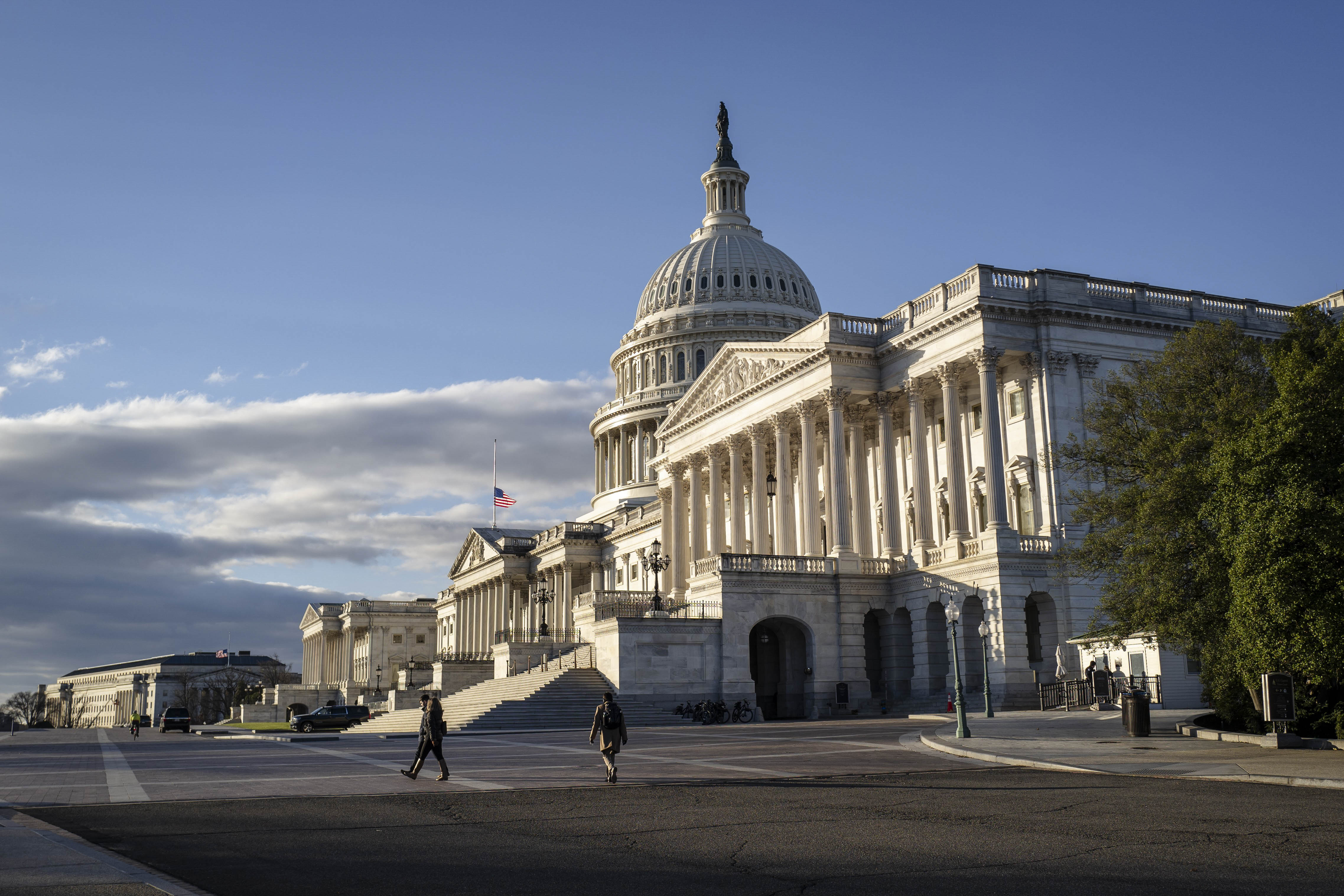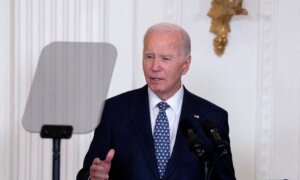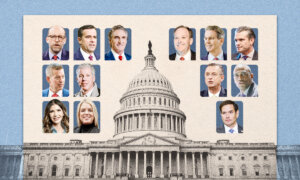Congressional Republicans intend to use the budget reconciliation process to fund President-elect Donald Trump’s second-term agenda within 100 days of his inauguration.
With control of both the House and Senate, Republicans might achieve that goal, but there are obstacles. They must first agree on both the process for considering the legislation and its substance, then pass it quickly.
The entire Trump agenda is at stake because it depends on immediate action, given the looming midterm elections and Trump’s own term limit. If Congress cannot provide the funds for Trump’s initiatives within the next few months, experts say that the president may struggle to get much done in his second term.
Process
A budget reconciliation bill enables Congress to quickly pass tax, spending, and debt ceiling legislation with a simple majority. Most Senate actions require a three-fifths majority or 60 votes, but a reconciliation bill is an exception.“Reconciliation bills, in general, are the vehicle of choice now to pass partisan-driven tax and spending changes,” Henry Olsen, a senior fellow with the Ethics and Public Policy Center, told The Epoch Times on Jan. 6.
The Tax Cuts and Jobs Act of 2017, the American Rescue Plan Act of 2021, and the Inflation Reduction Act of 2022 were reconciliation bills.
House Speaker Mike Johnson (R-La.) would like to pass the entire agenda in a single reconciliation bill. The advantage, analysts say, is that it provides fewer opportunities for congressional Republicans to balk at parts of the plan.
“The more you chop things up, the more opportunities that gives people to express reservations and to scuttle individual components,” Matthew Wilson, an associate professor of political science at Southern Methodist University, told The Epoch Times.
A single bill would require Republicans to cast an up or down vote on the entire Trump agenda, Wilson said, making dissent less likely.
Senate Majority Leader John Thune (R-S.D.) favors a two-bill approach, possibly to get faster action on certain parts of the Trump agenda.
Thune called for “a once-in-a-generation investment in border security and immigration enforcement” during a Dec. 17 floor speech, to be followed by a second reconciliation bill to extend the Trump tax cuts. Those tax cuts expire at the end of 2025.
Republicans generally favor separating tax and spending bills, according to Aaron Dusso, an associate professor of political science at Indiana University Indianapolis.
“It makes it easier to defend tax cuts when you don’t vote at the exact same time for spending cuts,” Dusso told The Epoch Times.
Trump has consistently said that he favors the single-bill approach but has indicated that he is open to passing the legislation in two packages.
“I like one big, beautiful bill, and I always have. I always will,” Trump said at a Jan. 7 press conference at Mar-a-Lago. “But if two [bills] is more certain—it does go a little bit quicker because you can do the immigration stuff early.”

Speaker of the House Mike Johnson (R-La.) is flanked by (L–R) Rep. Blake Moore (R-Utah), Rep. Steve Scalise (R-La.), and Rep. Tom Emmer (R-Minn.) during a press conference on Capitol Hill on Dec. 10, 2024. (Kent Nishimura/Getty Images)
Trump appears set on ironing out the details right away. He will meet with Senate Republicans in Washington on Jan. 8. And during his Jan. 7 press conference he mentioned planned meetings with House Republicans at Mar-a-Lago, which will be held later in the week.
Content
Trump campaigned on promises to close the southern border, increase domestic manufacturing and energy production, and cut taxes quickly. Delivering on those promises will require funding, which will be the substance of the reconciliation bill or bills.No specifics have yet been announced, and no spending total has been mentioned.
While congressional Republicans appear eager to support Trump’s agenda, some may balk at one item that will be included in the package: an increase in the nation’s debt ceiling.
The last time the GOP struck a deal to increase the borrowing limit, it set the stage for a revolt by Republican fiscal hawks. Four months later, their speaker was ousted by his own majority.
Trump and Johnson have tried to allay concerns by saying that raising the debt ceiling is something of a formality and does not mean that they intend to increase federal spending.
“I just don’t want to see a default. That’s all I want,” Trump said during the Jan. 7 press conference. “It’s really just about extending it,” he added, referring to the deadline on the current debt agreement.
Johnson said that raising the debt ceiling would have to be included in the bill to prevent a loss of faith in the U.S. economy, but Republicans would not allow the debt to reach the new limit.
“While that is almost a pro forma sort of step that must be taken, the commitment at the same time is to reduce spending, not to spend more,” Johnson said at a Jan. 7 press conference at the Capitol.
Timing
House Republicans face reelection in less than two years. The party holding the White House has lost seats in the House in all but two midterm elections for the past 100 years. Failing to deliver on the Trump agenda during the next several months could derail it indefinitely.
Incoming Senate Majority Leader Sen. John Thune (R-S.D.) after the Senate Republican leadership election in Washington on Nov. 13, 2024. (Madalina Vasiliu/The Epoch Times)
“This has to work by sometime, presumably, in the first nine months or so of this year, before the next fiscal year starts,” Olsen said. If that doesn’t happen, he said, “President Trump’s agenda—at least the part that relies on legislative action—will be, at best, on life support.”
Lawmakers appear driven to approve this spending quickly, something that they are generally unable to do, according to Wilson.
“I think Johnson perceives that time is of the essence, and he will try to move heaven and earth to expedite these things and to take advantage of the momentum of a new presidency to get this through,” Wilson said.
House Majority Leader Steve Scalise (R-La.) said that the House would pass both a budget and a reconciliation bill in short order.
“In February, we’re going to get our budget on the floor. The committees will be working by March to actually get the policies in place,” Scalise told reporters on Jan. 7. “Then [we will] move that through the House by April, by Easter.”
Easter falls on April 20, which will be Trump’s 91st day in office.
If that fails, Johnson said in a Jan. 5 interview, the worst-case scenario would be Memorial Day, May 26.














